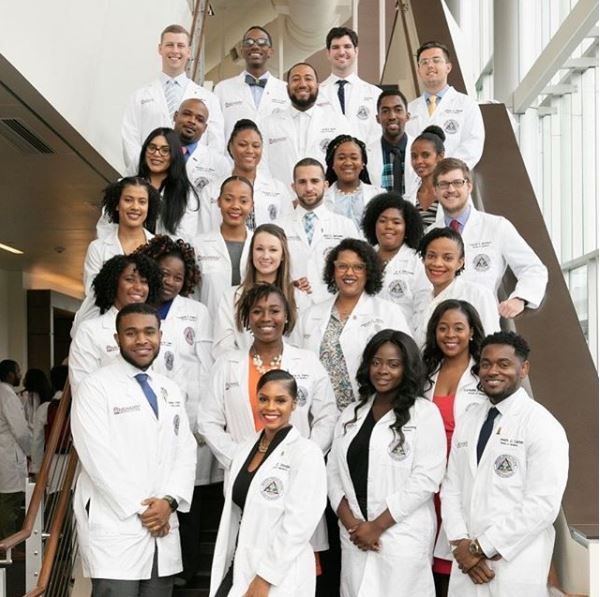NASHVILLE, Tenn. — Just before students at Meharry Medical College went home for Thanksgiving, Dr. James Hildreth, the school’s president, emailed them a video message that he acknowledged seemed hard to believe. Or at least they had to give it a second listen.
“We’ll gift each of you $10,000 in cash,” he said, “You heard me right.”
They were told to expect a direct deposit the next day or pick up a check in person. Hildreth, an expert in infectious diseases who helped lead Nashville’s pandemic response, explained that this gift with no strings attached was money from the CARES Act, a major covid-19 relief law passed by Congress in 2020. He asked only that they be “good stewards” of the windfall.
After deep consideration, Meharry’s administration decided to give roughly a third of its CARES Act funding — $10 million — directly to its future doctors, dentists and public health researchers. All told, 956 students received payments.
Meharry’s students had already been heavily involved in the pandemic response, staffing Nashville’s mass covid testing and vaccination sites. But the money isn’t so much surprise compensation for volunteer efforts as it is an investment in a future career — and an assist in overcoming financial hurdles Black students especially face to become medical professionals.
While Black Americans make up roughly 13% of the population, the Association of American Medical Colleges finds Black doctors account for just 5% of the nation’s working physicians — a figure that has grown slowly over more than a century. And studies have found that Black patients often want to be cared for by someone whom they consider culturally competent in acknowledging their heritage, beliefs and values during treatment.
Meharry graduates more Black physicians than almost any other U.S. school. And half of its M.D.s enter the high-demand but lower-paying specialty of primary care.
“We felt that there was no better way to begin distributing these funds than by giving to our students who will soon give so much to our world,” Hildreth said.
Andreas Nelson fell silent, he recalled later. He went to his banking app and stared in disbelief. “$10,000 was sitting just in my bank account. It was astonishing,” he said. “I was literally lost for words.”
The Chicago native is finishing a master’s degree in health and science at Meharry with hopes of entering its dental school. The average student loan debt in the program totals more than $280,000. So, undoubtedly, 10 grand won’t make much of a dent in the debt.
But the money in his pocket eases his top concern of making rent each month. Nelson said it feels as though he’s being treated like an adult, allowing him to decide what his greatest needs are in getting through school.
“It’s motivating,” Nelson said. “Because that means they have trust in us to do with this money whatever the cause may be — whether it be student debt, investing or just personal enjoyment.”
Meharry was founded a decade after the Civil War to help those who had been enslaved. But the 145-year-old institution has always struggled financially, and so have its students.





You must be logged in to post a comment Login